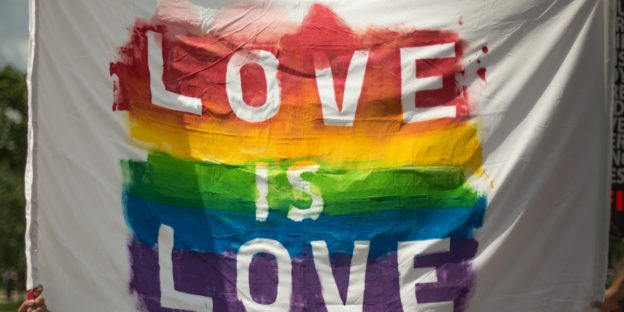People in the LGBTQAI+ community are at increased risk for various behavioral issues, including substance use disorders (SUDs). Although society is more accepting of these individuals, there’s still work to do. Unfortunately, some people are lucky enough to have friends and family to support them. Eventually, this can lead them to try other ways of coping.
Why is the LGBTQAI+ population having higher levels of substance use disorder? How can you get help for someone you love (including yourself)? Please continue reading below.
Mental Health and Substance Use Among Sexual Minorities
People who identify as lesbian, gay, bisexual, transgender or questioning often encounter social stigma, harassment and violence. Some also feel shame or guilt associated with their sexual orientation. To help cope with these feelings, some people turn to drugs or alcohol. They’re able to numb their pain, at least for awhile, and forget about their insecurities.
Unfortunately, drugs and alcohol are only temporary bandages – and dangerous. By regularly using these substances, a person can become dependent on them, putting them at risk for addiction.
According to the 2018 National Survey on Drug Use and Health, people who identify as gay or lesbian are twice as likely to suffer from alcohol addiction. LGBTQAI+ adults are also more likely to engage in casual, binge or heavy alcohol use. Furthermore, a 2020 study by the Trevor Project found that 40 percent of LGBTQAI+ youth considered suicide in the last year.
Why Substance Use is Higher Among the LGBTQAI+ Community
To help LGBTQAI+ individuals struggling with substance use, we must understand why they turn to drugs or alcohol in the first place. Here are some of the most common reasons why people follow this path:
- Discrimination and social stigma. While there is growing acceptance for LGBTQAI+ individuals, there is still a lot of discrimination and social stigma in everyday life. This can come from friends, family, neighbors, coworkers or even strangers.
- Lack of support. Many sexual minorities stay “in the closet” to avoid discrimination. Living a secret, double life can lead to depression and anxiety.
- Co-occurring disorders. Stress, anxiety disorders, and depression are all common among LGBTQ+ individuals. Some also suffer from serious health issues, like hepatitis, HIV/AIDS, and other sexually transmitted diseases. These issues can make it more difficult to access treatment.
- Internalized homophobia. Some members of the LGBTQAI+ community suffer from internalized homophobia, which occurs when they self-identify with the stigmas surrounding sexual minorities.
Specialized Substance Use Treatment for the LGBTQAI+ Population
Many sexual minorities facing substance use problems are afraid to access help from a traditional treatment facility. They worry they won’t receive the support and understanding they need, and may even face inappropriate comments from peers and counselors. Even if they agree to treatment, many LGBTQAI+ individuals don’t fully let down their guards.
Fortunately, there are more specialized treatment centers trained to treat sexual minorities with substance use problems. If you or a loved one identify as gay, lesbian, bisexual, transgender or questioning, we highly recommend seeking an addiction treatment center with experience working with this population.
Awakenings Treatment Center is a holistic treatment center in Agoura Hills, CA. We offer a specific track focused on the unique needs of LGBTQAI+ individuals. We are here to support you or a loved one, regardless of how you identify in terms of sexual orientation. Our goal is to address your challenges (coming out, bullying, trauma, grief, workplace issues, etc.) and develop alternative ways to cope with stress and anxiety.
There is absolutely no judgment here. We are friends, we are family, and we are here to help. Contact Awakenings Treatment Center today to learn more about our LGBTQAI+ addiction treatment center.








